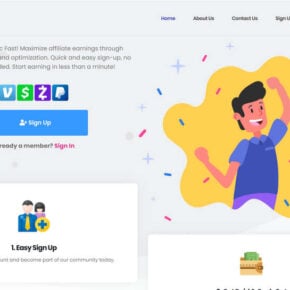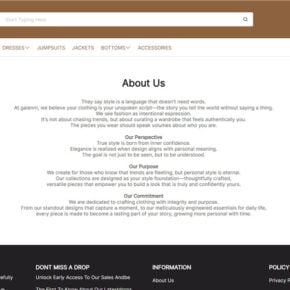Scams have become increasingly prevalent in the digital age, with fraudsters constantly finding new ways to deceive unsuspecting individuals. One such scam that has gained significant attention in recent years is the ‘Free Round Trip Tickets From Southwest Airlines’ Facebook giveaway scam. This article aims to provide a comprehensive overview of this scam, including what it is, how it works, what to do if you have fallen victim, technical details, and statistics to support the points made.

What is the ‘Free Round Trip Tickets From Southwest Airlines’ Facebook Giveaway Scam?
The ‘Free Round Trip Tickets From Southwest Airlines’ Facebook giveaway scam is a fraudulent scheme that aims to trick users into believing they have won free round trip tickets from Southwest Airlines. Scammers create fake Facebook pages or posts that mimic the official Southwest Airlines page, using the company’s logo, branding, and even similar URLs to make them appear legitimate.
These fake pages or posts often claim that Southwest Airlines is giving away a limited number of free round trip tickets to celebrate a milestone or anniversary. To participate, users are required to like, share, and comment on the post, as well as provide personal information such as their name, email address, and phone number.
How Does the Scam Work?
The scam works by exploiting users’ desire to win something for free and their trust in well-known brands like Southwest Airlines. The scammers create an illusion of legitimacy by using official logos, branding, and similar URLs. They also employ psychological tactics to make users feel a sense of urgency and excitement, urging them to participate quickly before the tickets run out.
Once users engage with the fake post or page, scammers collect their personal information, which can be used for various malicious purposes such as identity theft, phishing attacks, or even selling the data to other cybercriminals. In some cases, users may also be redirected to external websites that contain malware or viruses, putting their devices and personal information at risk.
What to Do If You Have Fallen Victim?
If you have fallen victim to the ‘Free Round Trip Tickets From Southwest Airlines’ Facebook giveaway scam, it is crucial to take immediate action to protect yourself and minimize the potential damage.
1. Report the Scam
The first step is to report the scam to Facebook. You can do this by clicking on the three dots in the top right corner of the post or page and selecting the “Report” option. Facebook has dedicated teams that investigate and take action against fraudulent accounts and posts.
2. Change Your Passwords
It is essential to change your passwords for all your online accounts, especially if you have provided personal information to the scammers. Use strong, unique passwords that include a combination of letters, numbers, and special characters. Consider using a password manager to securely store and generate passwords.
3. Monitor Your Accounts
Regularly monitor your bank accounts, credit cards, and other financial accounts for any suspicious activity. If you notice any unauthorized transactions or unusual behavior, contact your financial institution immediately to report the issue and take appropriate action.
4. Run a Scan with Malwarebytes
Scammers often use these types of scams to distribute malware or viruses. To ensure your device is not infected, it is recommended to run a scan with a reputable antivirus software like Malwarebytes Free. This will help detect and remove any potential threats.
Technical Details of the Scam
The ‘Free Round Trip Tickets From Southwest Airlines’ Facebook giveaway scam utilizes various techniques to deceive users and collect their personal information. Here are some technical details of the scam:
- URL Spoofing: Scammers create URLs that closely resemble the official Southwest Airlines website to trick users into believing they are on a legitimate page.
- Phishing Forms: Fake pages often include forms that prompt users to enter their personal information, which is then collected by the scammers.
- Social Engineering: Scammers use psychological tactics to create a sense of urgency and excitement, encouraging users to engage with the scam quickly.
- Malware Distribution: In some cases, users may be redirected to external websites that contain malware or viruses, which can infect their devices.
Statistics on Facebook Scams
Facebook scams, including the ‘Free Round Trip Tickets From Southwest Airlines’ giveaway scam, have become alarmingly common. Here are some statistics that highlight the prevalence of these scams:
- According to a report by the Better Business Bureau, Facebook scams accounted for over $117 million in losses in 2020.
- In a survey conducted by NortonLifeLock, 1 in 5 respondents reported falling victim to a Facebook scam.
- According to the Federal Trade Commission (FTC), there were over 32,000 reports of prize and sweepstakes scams in 2020, with losses totaling more than $22 million.
Summary
The ‘Free Round Trip Tickets From Southwest Airlines’ Facebook giveaway scam is a deceptive scheme that preys on users’ desire to win something for free. By creating fake pages or posts that mimic the official Southwest Airlines page, scammers collect users’ personal information and potentially expose them to malware or viruses. If you have fallen victim to this scam, it is crucial to report it, change your passwords, monitor your accounts, and run a scan with a reputable antivirus software like Malwarebytes Free. Stay vigilant and remember that if something seems too good to be true, it probably is.




